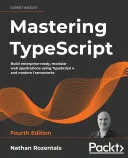Introduction to Plant Pathology
4.7
Reviews from our users

You Can Ask your questions from this book's AI after Login
Each download or ask from book AI costs 2 points. To earn more free points, please visit the Points Guide Page and complete some valuable actions.Related Refrences:
This invaluable resource introduces the eleven types of organism that cause plant disease, ranging from higher plants to viroids and describes examples of cash and staple crop diseases that have caused human catastrophes. Early chapters cover serological and molecular techniques for the diagnosis of plant pathogens, epidemiology, methods for estimating disease severity and its effect on crop yields and techniques for limiting inoculum. Later chapters are concerned with colonisation of the plant and symptom development and the underlying biochemical and genetic factors that control these events. Finally, the control of plant disease using a variety of techniques including genetic modification is discussed. Modern diagnostic techniques Epidemiology and the measurement of disease severity The biochemistry and molecular biology of plant disease Control through cultural, biological, genetic and molecular techniques A wealth of examples and applications including full colour photographs
Free Direct Download
You Can Download this book after Login
Accessing books through legal platforms and public libraries not only supports the rights of authors and publishers but also contributes to the sustainability of reading culture. Before downloading, please take a moment to consider these options.
Find this book on other platforms:
WorldCat helps you find books in libraries worldwide.
See ratings, reviews, and discussions on Goodreads.
Find and buy rare or used books on AbeBooks.
1366
بازدید4.7
امتیاز0
نظر98%
رضایتReviews:
4.7
Based on 0 users review
Questions & Answers
Ask questions about this book or help others by answering
No questions yet. Be the first to ask!














